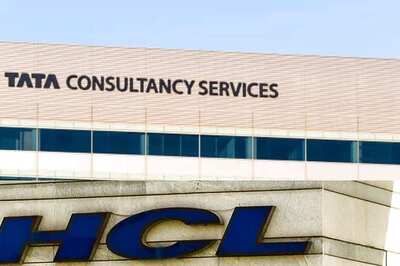
views
Washington: India has demanded concerted global effort to deal with the great financial turmoil across the world and a greater say for the developing and emerging economies in international financial institutions.
"Emerging markets have so far shown resilience. However, they may be vulnerable to both first order and second order effects," Indian Finance Minister P Chidambaram told an annual meeting of world financial leaders here on Sunday.
The unfolding "crisis will necessarily impact upon the global availability of financial resources for development," he warned in a statement to the Development Committee of the World Bank and the International Monetary Fund (IMF).
Chidambaram, who represents Bangladesh, Bhutan, India and, Sri Lanka on the Bank-Fund Board of Governors, himself is not attending the meetings to deal with the impact of the global meltdown on the Indian economy.
"We need a global effort, particularly in countries with developed capital markets, to review financial oversight and regulatory mechanisms," he said noting, "The developing countries will suffer for no fault of theirs."
"They did not cause the contagion. Many are not equipped to face the consequences," the Chidambaram stated cautioning, "Accessing financial resources may become more difficult and expensive. Flows of foreign capital may shrink."
"A global recession will sharply contract the demand for exports of many developing countries, adversely affecting their growth prospects," he said noting, "Some early signs of recession in the three major economic regions of the world - the USA, Japan and the European Union - are discernible."
He said "changing dynamism of the global economy, the evolving weights of developing and emerging market economies in the global scenario and their stake in the development process needs to be reflected in the governance structure of the World Bank.
"These countries need to see in the Bank an institution which is relevant to the developing world's economic development agenda," he said. "They also need to see a greater role for themselves in the strategic agenda setting processes of this important global institution."
There is a danger of multilateral institutions "losing relevance, legitimacy and interest of their clientele" in the absence of a realignment of their structures, functions and procedures to meet current requirements, Chidambaram stated.
The ongoing Voice and Participation reform process at the Bank "is an opportunity to make the Bank a more responsive, credible and relevant organization so that it continues to play a vital role in global economic affairs," he added.
"This is an opportunity that must not be lost," Chidambaram stated cautioning against any attempt to rush through elements, which would not meet the long term purposes of reforms to realign the Bank's role in pursuit of the vision of a "more inclusive and sustainable globalisation".
Expressing disappointment at "proposals on the most important dimension of Voice, namely 'Voice as voting power and shareholding'," he said it "falls much short of expectations by moving away from being a comprehensive one," a commitment made at the Spring Fund-Bank meeting here.
"What we have is a miniscule increase of 1.4 percent in the voting share of developing countries, that too through a mechanical exercise of doubling Basic Votes," Chidambaram stated.
An "ambitious voice reform outcome", he said, will not only meet the expectation of the Developing and transition countries (DTCs) but also make the Bank a dynamic international organization, which "can help in transforming this world into a more prosperous and equitable one."

















Comments
0 comment